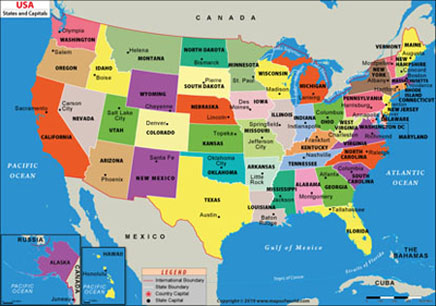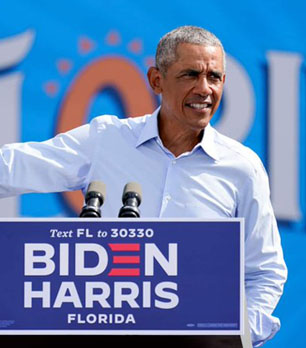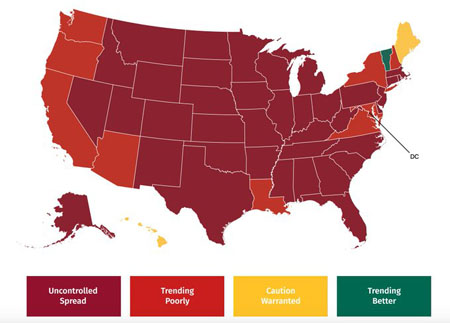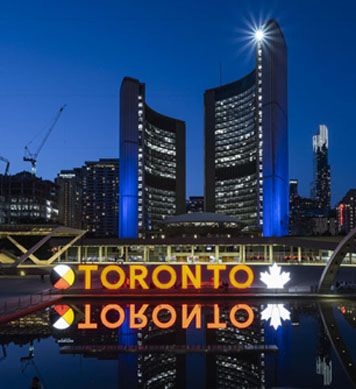Waiting for the 2020 US election from just across the lake (while also thinking about Canadian public finance)
Nov 1st, 2020 | By Citizen X | Category: In BriefFROM THE DESKTOP OF CITIZEN X, GANATSEKWYAGON, ON. NOVEMBER 1, 2020. One thing Canadians never quite understand about their friendly-giant neighbours in the USA is how they ever manage to remember even the bare political geography of their federal system.
Memorizing the 10 provinces of Canada and their capital cities at school or otherwise takes some mental effort. But it is no great ordeal. Memorizing all 50 states of the union and their capital cities is a major intellectual exercise.
Among many other things, Americans are blessed by the almost crazily diverse geography of their federal system (the legendary North and South Dakota, eg, or North and South Carolina, or Virginia and West Virginia, etc) In my advancing age (and with cumulating visits among friends, neighbours, and relatives next door) I have come to understand that the answer to how Americans manage to remember all this is that they don’t.

And that it seems to me, as I look at the leaves outside my office window, in between staring at “2020 Electoral Map Based on Polls” on my PC screen, is what makes this November 3, 2020 election still so moody and uncertain.
ELECTORAL COLLEGE BLUES : For better or (most likely) worse, it’s not the nation-wide popular vote that counts. It’s results in an Electoral College where each state gets the number of seats it has in the House of Representatives and the Senate combined.
The Senate-related votes tilt the College somewhat in favour of states with fewer people (but equal Senate representation to the likes of California, home to more people than all of Canada!).

The regular update of the “2020 Electoral Map Based on Polls” I’m looking at right now shows that if you put together all the states which are safe or likely for or leaning towards Joe Biden, he already has 279 electoral votes, where it takes only 270 to win.
At the same time, see, eg : “Understanding the polls: Why a popular vote lead for Biden isn’t a guaranteed win” ; and “Final NPR Electoral Map: Biden Has The Edge, But Trump Retains Narrow Path.” (And there is one version of this map in which Biden already has 279 electoral votes as well, and another in which each side has 259 votes and Pennsylvania remains a toss-up!)
DEMOCRACY IN AMERICA 2020 : The modern United States (what the French aristocrat Alexis de Tocqueville christened “Democracy in America”in the first half of the 19th century) has had a sordid and twisted past – like many other ambitious political and economic projects in human history.
The great redemptive quality of Democracy in America has also been that it at least began with great universal ideals. And, whatever else, it has made intermittent great efforts to live up to these ideals. (As in the Civil War, the Progressive Movement, the New Deal, the Civil Rights Movement, etc, etc – and as Joe Biden has been proclaiming at his closing 2020 car rallies : “Wall Street didn’t make the American economy ; You did!”)
The greatest effort of this sort in my own lifetime of observation from just 42 miles across the lake has been the election of Barack Obama as President of the United States in 2008 and 2012. And that of course means that I fervently hope Biden-Harris wins (and the Democrats take the Senate as well as the House) in 2020.
Whether quite this kind of seminal grand victory for American democracy and American progress is in the cards of who knows just what lies ahead – with all the added fresh complexities of election day on and after November 3 – is the great remaining mystery.
FATE OF THE MAN FROM MAR-A-LAGO : The utter craziness of a not-impossible second term for the Man from Mar-a-Lago just adds to the general sense of American democratic unease that we can also feel in Canada (in my own case almost as if it is being carried on a breeze from Youngstown, NY, blowing gently across the lake).
At least as we approach the end of the long period from just before the 2016 US election to just before the 2020 election, I remain more impressed than I used to be by the passion and resilience of the 40% or so of American federalism that still adamantly rejects the new more diverse, egalitarian, forward-looking, and globally connected USA of the Obama-Biden/Biden-Harris new directions that makes the most sense to me.
But it’s clearer to me now as well that Barack Obama was an essentially moderate and compromising democratic politician – as his moderate Obamacare health care reform underlined. Whatever else, Biden-Harris would be the same. And, again, like many others in many places, I certainly believe myself that is what America needs right now, almost desperately.
CANADA’S MINISTER OF FINANCE ON THE ROAD AHEAD : Meanwhile, there are those who would argue that we’re in our own crazy coronavirus phase in Canada right now as well.
We have already spent more per capita on fighting this strange and altogether unusual global pandemic than any other G20 country. And an October 28 virtual address to the Toronto Global Forum from Canadian finance minister Chrystia Freeland makes clear that this won’t be ending any time soon.
Here is a quick summary of what Ms Freeland said :
- “You already know what our essential policy is. It is to do whatever it takes to protect Canadians’ health, jobs and living standards; to put COVID-19 behind us as quickly as we can; and then to foster the strongest, most resilient, most innovative, most globally competitive and most inclusive economy possible …
- “Just as there are no atheists in foxholes, it seems there are few disciples of Ayn Rand in a pandemic. We’re all in this together …
- “let me offer this important caveat. While advocating expansive fiscal policy to battle COVID-19 — and to grow our way out of the coronavirus recession — I am not among those who think Canada should have a fling with Modern Monetary Theory, which holds that deficits don’t matter for a government that issues debt in its own currency … Whether on Bay Street or Main Street, there are no blank cheques, and there are no free lunches … Our fiscally expansive approach to fighting the coronavirus cannot and will not be infinite. It is limited and temporary.
- “A smart and careful government – and those are two adjectives I would use to characterize our policy – will impose those limits upon itself, rather than waiting for the more brutal external restraints of international capital markets … I will have further thoughts to share soon about the fiscal rules and limits by which we will govern ourselves …
- “As we beat down this virus, we will need to provide meaningful investment to build our way out of the coronavirus recession, and to ensure our economy comes roaring back, stronger than before … That means laying a foundation for a green economy, an innovation economy and a fair economy that supports good jobs for all Canadians …
- “As that occurs, we will resume the long-standing, time-tested Canadian approach, with fiscal guardrails and fiscal anchors, that preceded this pandemic. For these are the very policies that left us so well positioned to meet this generational challenge.”
Happy Belated Halloween 2020 …





